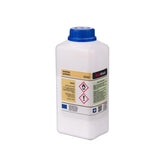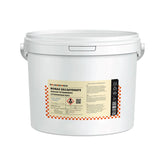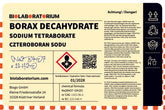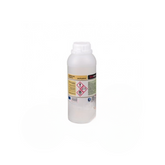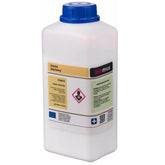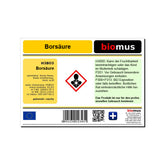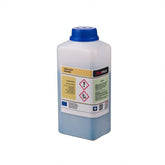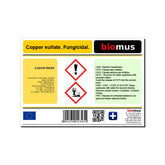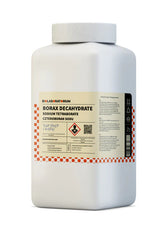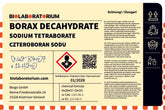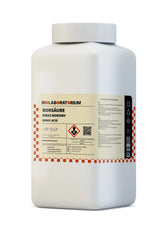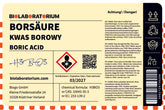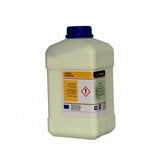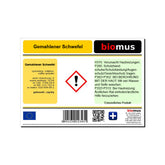Benzyl alcohol – Versatile applications of an aromatic alcohol
Benzyl alcohol is an aromatic alcohol used in a wide range of industrial and technical applications. This article provides an overview of the key properties and uses of this useful chemical building block.
What is benzyl alcohol?
Benzyl alcohol is an organic compound with the chemical formula C6H5CH2OH. It belongs to the group of aromatic alcohols and is colorless, slightly oily, and has a characteristic floral scent. Benzyl alcohol occurs naturally in many plants such as jasmine, cinnamon, vanilla, and almonds and can also be produced synthetically.
Due to its chemical structure and properties, benzyl alcohol finds application in numerous industrial sectors. It is primarily used as a solvent, plasticizer, fragrance, and preservative.
Industrial applications of benzyl alcohol
Chemical industry
In the chemical industry, benzyl alcohol serves as an important intermediate for the production of other chemical compounds. For example, it is used to produce benzaldehyde, benzoic acid, and benzyl halides, which in turn serve as starting materials for further syntheses.
Furthermore, benzyl alcohol is used as a solvent for paints, dyes, adhesives, and plastics. Due to its good solvent properties and compatibility with many organic materials, it is a useful auxiliary agent in chemical processing.
Cosmetics and perfume industry
In the cosmetics and perfume industry, benzyl alcohol is often used as a fragrance. It gives products such as creams, lotions, soaps, and perfumes a floral, fruity scent. Additionally, it also serves as a preservative in cosmetics due to its antimicrobial properties.
Food industry
In the food industry, benzyl alcohol is used as a flavor additive to give products a natural, fruity taste. It is found, for example, in beverages, confectionery, baked goods, and dairy products.
Due to its safety for human consumption, benzyl alcohol is approved as a food additive and is used in foods in many countries.
Pharmaceutical Industry
In the pharmaceutical industry, benzyl alcohol is used as a solvent for active pharmaceutical ingredients. It also serves as a preservative in injection solutions, eye drops, and other medications.
Furthermore, benzyl alcohol is used as an excipient in ointments, creams, and lotions. Here, its good tolerability and antimicrobial effect are beneficial.
Other Applications
In addition to the main applications mentioned, benzyl alcohol is also used in other industries, for example:
- As a solvent in inks, printing inks, and adhesives
- As a plasticizer in plastics and elastomers
- As a component of hydraulic fluids and lubricants
Properties and Advantages of Benzyl Alcohol
Benzyl alcohol is characterized by a number of useful properties that justify its diverse applications:
-
Solvent Properties: Benzyl alcohol is a good solvent for many organic compounds and polymers. It is miscible with water and most common solvents.
-
Odor and Taste: The characteristic floral-fruity odor and taste of benzyl alcohol make it a popular fragrance and flavor additive.
-
Antimicrobial Effect: Benzyl alcohol has antimicrobial activity against a range of bacteria, fungi, and yeasts. Therefore, it is used as a preservative.
-
Low Toxicity: Benzyl alcohol is considered relatively low in toxicity to humans and is approved as a food additive in many countries.
-
Environmental Compatibility: Compared to many other solvents, benzyl alcohol is readily biodegradable and more environmentally friendly.
These properties make benzyl alcohol a versatile and valuable chemical building block in industry.
Conclusion
Benzyl alcohol is an aromatic alcohol with numerous applications in industry. Due to its favorable properties such as solvency, odor, antimicrobial effect, and environmental compatibility, it is used in the chemical industry, cosmetics and perfume industry, food industry, pharmaceutical industry, and other areas.
As a useful intermediate, solvent, fragrance, and preservative, benzyl alcohol is indispensable in many industrial processes. Its versatility and reliability make it a valuable chemical building block.
